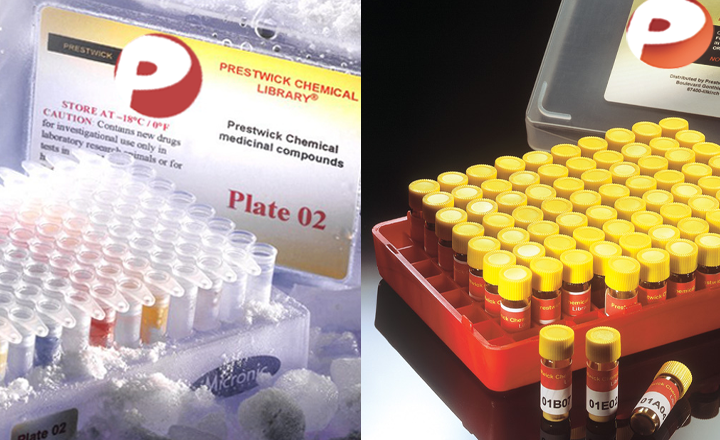Benzethonium chloride: A novel anticancer agent identified by using a cell-based small-molecule screen
Yip KW, Mao X, Au PYB, Hedley DW, Chow S, Dalili S, Mocanu JD, Bastianutto C, Schimmer A, Liu FF
Clinical Cancer Research - vol. 12 5557-5569 (2006)
Clinical Cancer Research
PURPOSE:This study aims to identify a novel therapeutic agent for head and neck cancer and to evaluate its antitumor efficacy.nnEXPERIMENTAL DESIGN:A cell-based and phenotype-driven high-throughput screening of approximately 2,400 biologically active or clinically used compounds was done using a tetrazolium-based assay on FaDu (hypopharyngeal squamous cancer) and NIH 3T3 (untransformed mouse embryonic fibroblast) cells, with secondary screening done on C666-1 (nasopharyngeal cancer) and GM05757 (primary normal human fibroblast) lines. The « hit » compound was assayed for efficacy in combination with standard therapeutics on a panel of human cancer cell lines. Furthermore, its mode of action (using transmission electron microscopy and flow cytometry) and its in vivo efficacy (using xenograft models) were evaluated.nnRESULTS:Benzethonium chloride was identified as a novel cancer-specific compound. For benzethonium (48-hour incubation), the dose required to reduce cell viability by 50% was 3.8 micromol/L in FaDu, 42.2 micromol/L in NIH 3T3, 5.3 micromol/L in C666-1, and 17.0 micromol/L in GM05757. In vitro, this compound did not interfere with the effects of cisplatin, 5-fluorouracil, or gamma-irradiation. Benzethonium chloride induced apoptosis and activated caspases after 12 hours. Loss of mitochondrial membrane potential (DeltaPsiM) preceded cytosolic Ca2+ increase and cell death. In vivo, benzethonium chloride ablated the tumor-forming ability of FaDu cells, delayed the growth of xenograft tumors, and combined additively with local tumor radiation therapy. Evaluation of benzethonium chloride on the National Cancer Institute/NIH Developmental Therapeutics Program 60 human cancer cell lines revealed broad-range antitumor activity.nnCONCLUSIONS:This high-throughput screening identified a novel antimicrobial compound with significant broad-spectrum anticancer activity.


